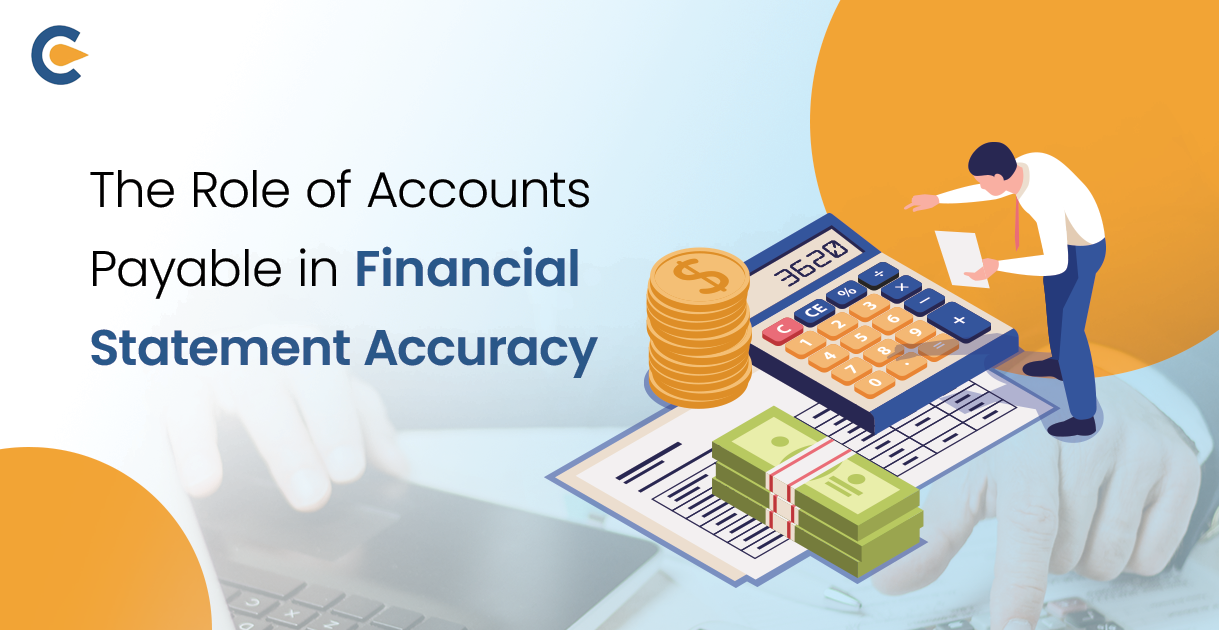The description of Religious Trusts is not defined under the income tax act. The specific law of particular religion dictates the formation of Religious Trust. Moreover, in compliances with the customary rules, trust gets involved only in the exercises of their own religion and their belief. Most of the ‘Religious Trusts’ support other purposes as well, such as ‘education,’ ‘medical facility,’ ‘catering food to the poor,’ etc.
How is Religious Trust being created?
Trusts can be defined in two groups:
- Private Trusts
- Public Trusts
All the Private trusts are included under the provisions of the Indian Trusts Act, 1882. Its formation is also regulated as per the type of trust. There is no principal Act for applications of Trust in all the States. But there are several states such as Bihar, Madhya Pradesh, Orissa, etc. that have established their own acts prescribing the requirements and procedure for the management of Public Trusts.
What are the vital components of the Religious Trust Deed?
- Objects: The purpose for which the trust gets formed is specified under this. It is an imperative clause, as all the activities should be undertaken for the utilization of the specified purposes only.
- Approval of Reserves: The Trust can acquire donations, grants, recommendations; receive aids, or donations from any person, Government or any other Religious organizations, in cash or kind including immovable property without any cost on it. But it shall not take any such funds collected with the condition which is inconsistent with the purposes and objectives of the trust.
- Expenses: It is the responsibility of the trustees of trust to distribute the funds of the organization efficiently.
- Control of the Trustees: The trustees cannot perform any act which exceeds their abilities, which are thoroughly specified in the trust deed. The trustees are given the following responsibilities for overall conduct and supervision of the trust:
- Employment of the employees
- Engaging on trades, modifications, disposes or separate the trust properties
- Responsible for ‘Opening the bank accounts’ in the title account of trust
- File lawsuit on behalf of the trust
- Take any gift, donation or offering and preserve it
- Work for the advancement of the funds in trust
- View into the administration of the trust etc.
- Accounts and Inspection: The trustees are expected to keep proper books of accounts of all the assets, liabilities, income, and expense of the trust and also get the reports reviewed by a ‘chartered accountant.’
- Closing up: During the closing of trust, the assets of the trust should not be conveyed to the trustees. They shall be transferred to any other similar trust or association whose objects are the same to those of this trust. It should be done with the permission of the charity commissioner or Court or any other law as may be appropriate for the time being.
How to capture the benefit under the Income-tax Act?
- To get the tax benefit under the income tax act, 1961, the ‘Religious Trusts’ have to get themselves registered under the ‘income tax act’ under section 12AA.
- In the cases where the object clause gets modified or altered, it has to be supported with the modification along with the Registration Certificate. If such changes have not been done, then exemptions to the Income would not be permitted.
- Additionally, the returns should get filed on the due dates.
- If Gross Receipts surpasses Rs. 2, 50,000/- then the reports of Religious Trust must be checked just to get the possible tax benefit.
Purpose of Tax Benefits to Trusts
The primary purpose of giving tax benefits to the Religious Trusts is to support their social welfare and religious beliefs. This is the reason why the exemptions have also been linked with the fulfillment of such causes. The Trusts need to pay the taxes on the receipts which have not been utilized for the said purposes.
What are the Exceptions?
- General Reason: If the donated funds of the trust does not get utilized to religious purposes in the previous year.
- Other Reason: If the trust has acquired its Income in any other form, but did not apply it towards religious purposes, which may be anything.
- Special Case: As you can observe that the amount must get used up in the Next Year in which it was received. But there are particular situations as well through which the trust can avoid the disallow ability of exemption. Those cases would be subjected to litigation.
What is the practice of Secret Donations in Religious Trust?
Secret Donations, as its name, speaks is a type of donations that are received with no identification of the contributor. It might be accepted towards the free Contribution or as a contribution towards corpus, but in both instances, it would be chargeable. ‘Anonymous Donations’ would be taxable with a rate of ’30 % u/s 115BBC and gets no exemption u/s 11 & 12 of the Act, as said above. Although, any sum received up to the Greater of the following Limit would not be chargeable at the rate of 30%, but it shall be chargeable ordinarily:
- 5% of Total Donations; OR
- Rs. 1,00,000/-
- Amount collected only above this Limit would be met and will be taxable with a rate of @30%.
What is the new phase of Religious Trust under the influences of Taxation?
- The new era of Taxation for Religious Trusts – is facing the new challenges ahead between a Standard Transformation in the Regulatory Scheme. It is equipped with some more additional compliance responsibility for this Financial Year of “2020-21”.
- To mitigate the present applications as computed by Hon’ble FM while giving the budget is
- To prepare and present a balanced process of record-keeping on the one hand,
- To create a financial instrument for the trust which may get regular/periodic checks to safeguard the settings of approval, registration or announcement, and
- To avoid a non-adversarial rules thoroughly.
Registration procedure of Religious Trust under section 12aa plus, 10(23c)
After examination, it is duly observed that the previous registration section 12AA has altered and replaced by section 12AB of the Act. All old provisions of section 12AA will be out of use, with effect from 01.06.2020. Registering Process for all has been given below:-
- All the Registered Trust under section 12AA or 10(23C)
All the registered trust has an obligation to re-apply for re-registration within a specific period of 3 months from 01.06.2020 and which will be permitted for next five years.
- ·Non- concurrent registration under the tax exemption under section 12AA and getting approval under section 10(23C)
- Nowadays, it is not permitted to simultaneously enjoy both of exceptions under section 12AA or authorization under section 10(23C).
- A choice is given to apply again for the Process under section 12AB under the new section for such trust.
- While registering under section 12AB, the approval under section 10(23C) or u/s 10(46) attains the withdrawals and inapplicability of the application.
- All New submissions for registration under section 12AA or authorization under section 10(23C)
- After receiving a new application, all the pending requests under the old regime will initially get a provisional registration given for three years. It can get extended afterward.
- All the provisional/temporary registration will be completed within one month from the end of the month as per the submission received.
- All the trust whose provisional registration has been successfully established, will then have to apply for final registration. It needs to be at least six months prior to the expiry period of Provisional Registration or within six months from the beginning of the activities of the trust, whichever is earlier by duration.
Significant changes concerning all Religious Trusts:
Conditionally, any provisional trust registration can get cancel in any of the following matters which are as follows-
- The Principal Commissioner of Income Tax Department /or the Commissioner of Income Tax Department will examine the trust if they are not fair with the objectives of trust, or are not working as per the mentioned matters of trust.
- The Principal Commissioner of Income Tax Department[1] /or the Commissioner of Income Tax Department will examine if the happenings of the trust has carried out in such a way that have breached the provisions of section 13(1) of the Act.
- If the trust is unsuccessful to invest/deposit as provided u/s 11(5) or
- If any advantage directly/indirectly has been leveraged in contributing to trustee/relatives of trustee etc. as per the necessities of section 13(3) or
- If the organization or trust gets shaped up for any particular religious public or caste discrimination.
- If it eventually happens to be a reserved/private religious trust.
- The Principal Commissioner of Income Tax Department /or the Commissioner of Income Tax Department examines the records and regular/annual fillings of the trust. The parameters are as follows:-
- The books of trust should get examined before the due date prearranged under section 44AB, which usually follows to be on 30.09.2020 unless it has explicitly extended.
- The examination/audit of the annual review report of the trust must be filed up to the before-mentioned due day, i.e., up to 30.09.2020.
- Examination over all the provisions regarding the prohibition of cross participation by trust in between dissimilar charitable trusts. It will be on inspection only if it has made revealed.
- An essential explaining has to be done in the form of enlightenment to section 10(23C). It has been supplementary to provide that Total Contributions are not part of the revenue of such trust/institution.
- Far-reaching changes have given up shape to give effect to considerable changes. Those are- Section 56 (‘Income from other sources’), Section 253 (‘Appeals to ITAT’), Section 115BBDA (‘Concerning Dividend’) & section 115TD. These relate to the Taxation of Trust, which has ceased to be qualified for exemption as a recorded charitable institution’.
Read our article:What are Public and Private Temples under the Indian Trusts Act, 1882?
CorpBiz Suggestions for Religious Trusts
These above agendas have been founded to be framed with the indebtedness of new Legal requirements. Keeping in mind the intention of legislature behind passing the same, we may humbly advise to take some direct action particularly for the Religious Trusts which are in survival:
- Be sure that submission for registration is being filed within due time as conferred above or any extended period.
- Take care while bearing strict Compliances for the provisions of section 11(5) and 13(3)as early as possible before ‘01.06.2020’. It needs to be accomplished by analyzing every item-concerning Assets and Balance sheets of Religious Trust.
- Additional effort needs to take place while making any payments transacting to the ‘trustee or any specified’ person.
- Be conscious of any new law as may be appropriate to the trust. It should comply with the agreement of Trust deed, which is substantial to attain the objects of the trust. Moreover, all examination should be ended up with proper compliance level of any such law.
What does Income-tax (First Amendment) Rules, 2018, says on Religious Trust?
Rule 17A, i.e., ‘Application Forms‘ and ‘rules for registration’ of Religious Trusts, has been wholly amended by Income-tax (First Amendment) Rules, 2018. 19-2-2018.
|
Provisions before alteration |
Fresh Provisions |
|
An application made in Form No. 10A with: 1. Get the original copy of Trust Deed or Instrument, with one ‘copy’ thereof. The commissioner may accept the exact certified copy of Trust Deed or Instrument instead of Original copy 2. Get The document, evidencing the formation of the trust or under any instrument of Trust or Trust Deed, with one copy along. 3. Address of institution where the trust has been in existence for year or years before the financial year. Provide two copies of the accounts of the trust relating to such prior year or years (but not more than three years immediately preceding the year). |
An application made in Form No. 10A with: 1. Self-certified copy of Trust Deed or Instrument 2. Self- certified copy formation of the Trust 3. Self-certified copy of the registration with (RoC) or Registrar of ‘Firms and Societies’ or Registrar of ‘Public Trusts.’ 4. Self-certified copy of the documents evidencing adoption or the objects 5. Proof of Existence 6. Self-certified copies of the annual accounts 7. Note on the activities of the Trust 8. Self-certified copy certification under section 12A or section 12AA, if any. B) Form No. 10A shall be furnished by electronic means: (i) under digital signature (ii) concluded electronic verification code for matters not covered under clause (i) C) Form No. 10A shall be confirmed by the person who is lawful to check the return of Income below section 140, as appropriate to the assesse. |
What to know about Section 12A (1) (ab) in short?
All the Religious trust which got approved under sections 12A or 12AA -and adopted modification in the object clause without intimation- is required to get registration again. The request needs to be made within thirty days from the day of such acceptance or alteration of the objects.
In other advices, the Subdivision is authorized to cancel the Registration of ‘Tax-Exempt Religious Trusts,’ if it is persuaded that these Trusts or Organizations are not meeting with the prescribed circumstances.
- Proposal of Form No 10A for Listing
As stated above, the duly filled Form No. 10 shall be submitted to the Principal Commissioner or Commissioner of Income-tax department- electronically by using a Digital sign or through the ‘Electronic Verification Code’ (EVC).
- Confirmation of Form No. 10A
The form shall be confirmed and signed by the person who is eligible to check the return of revenue under ‘Section 140’ of the ‘Income Tax Act, 1961’.
Conclusion
Charitable and religious donations and religious organizations are the subjects of the ‘concurrent list’ under the ‘seventh schedule’ to the Constitution of India. These are said to be where both the ‘Centre’ and the ‘States’ are capable of legislates and controls charitable organizations. Moreover, the ‘Schedule VII’ of the Indian Constitution focuses on the “Trust and Trustees” who finds a position at ‘Entry No. 10’ in the ‘concurrent list.’ Moreover, the charitable institution, Religious Endowments, and Religious Institutions” finds a place at ‘Entry No. 28’ of the Concurrent List.
As a result of this, the legal outline for the charity division in India is relatively complex. It includes several diverse Acts or legislations overriding their way, which are scheduled at the State level. Also, the State legislations has almost three primary legal forms of charitable bodies under Indian law which are: a) trusts (the Public Trusts Act, 1882), b) societies (the Societies Registration Act, 1860), and c) section 25 of the Companies Act, 1956.
All the legal plans governing the Charitable Institution will be depending on the formation of a business group in which the charitable organizations take place. At the very outset, there is no complete Central law for legal integration of ‘non-profit organizations,’ which applies to trusts, registered societies, and Section 8 of the Company Act. Hereby, we at Corpbiz have experienced legal professionals to help you with the Process of Registration of your Religious Trust for your Trust or to handle all by us. Our professional will ensure to mitigate all your ventures successfully as well as timely completion of your work.
Read our article:Guide: Registration Aspect of Educational Trust











